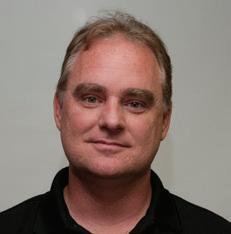
4 minute read
From The iNRRTS Office
NEW YEAR’S RESOLUTION 2024
ADVOCATE, ADVOCATE, ADVOCATE
Written by: CAREY BRITTON, ATP/SMS, CRTS®
In 2024, we need focus on advocating for our industry, teaching advocacy to our clients, peers and referral sources. For as long as I can remember, our industry has been in a state of decline due to the current insurance funding system; simply put, the pay for equipment is not keeping up with inflation. I have nightmares of artificial intelligence and the potential of vertical integration of our industry i.e., one company owns the insurance, the medical system, the manufacturer and the supplier). Although iNRRTS and other industry advocates are doing a lot, we as an industry are still not doing enough to stabilize what we love and depend on.
Insurance pressures have, in the last decade, consolidated mom and pop Durable Medical Equipment companies, and where service/support has been negatively impacted. I am sure you have noticed how difficult it is to find and keep customer service and technical service staff. It is no longer enough to show appreciation; we need to ensure the compensation for these skills are keeping up to be livable in your community.
We are seeing repair bills introduced in the state legislatures, as customers are noticing these delays in getting service and repairs to their needed equipment. These bills are not getting to the source of the problem, that labor/service rates are not reasonable.
In the past, the industry was able to use technical service as a loss to increase/maintain new business; however this is not sustainable to expect to keep increasing your business each year to offset the losses just to stay in business. With insurances cutting or not increasing fee schedules, something has to change. Suppliers have pushed manufacturing to lower the prices as low as possible, where in some cases it has affected quality or availability. Suppliers have continued to squeeze efficiency; however that direction is only causing burnout and early retirement. I believe we can only look toward insurance companies providing increased rates to sustain reasonable quality without cutting further services.
For those of us who have been in this industry for a while, it creates a real daily struggle on how we can keep doing the right thing for the clients we serve over doing what business allows and/or needs to survive.
C10RT, an article from DIRECTIONS Issue 6 (2023) noted many clinics are closing, and veteran therapists are retiring. Insurance still requires a clinician as a gatekeeper in getting equipment funded. Insurances are looking for reasons to deny equipment, and with younger therapists writing these letters, we are seeing increased denials. Similarly, the newer Complex Rehab Technology (CRT) providers have not been exposed to our industry’s history and are coming into the industry only knowing the current status, becoming accepting of the status quo.
For too many years we have advocated for our clients at the cost of our companies, and they can no longer absorb the losses to “do the right thing.” The newer CRT professionals are being taught with a more menu approach of what is covered by the insurance, which is the quickest way to the bottom.
We need to change our mindset and start advocating for a sustainable future. Start now, teaching/communicating why things are not covered, why clients have to pay for noncovered items and where they can complain to help stimulate change. We need to have these conversations early and often on how these services should be covered, and the consumer voice is the only solution. We need to teach our referral sources on the common denials, and what equipment will not be covered and to whom can voice their concerns and frustrations. Start budgeting time in your new year on advocating to legislators, locally and nationally, on the value of what we do and the concern and risks to losing this industry. I understand being too busy, but I also expect to work within this industry for at least another decade and cannot bear to think what it will be like without change now. If you don’t’ know how, ask iNRRTS and/or join groups or committees while there is time to make a positive change.
CONTACT THE AUTHOR Carey may be reached at CAREY.BRITTON@NSM-SEATING.COM











